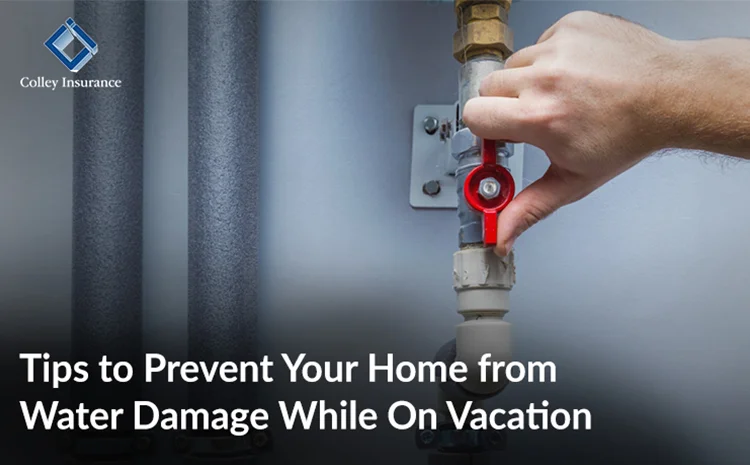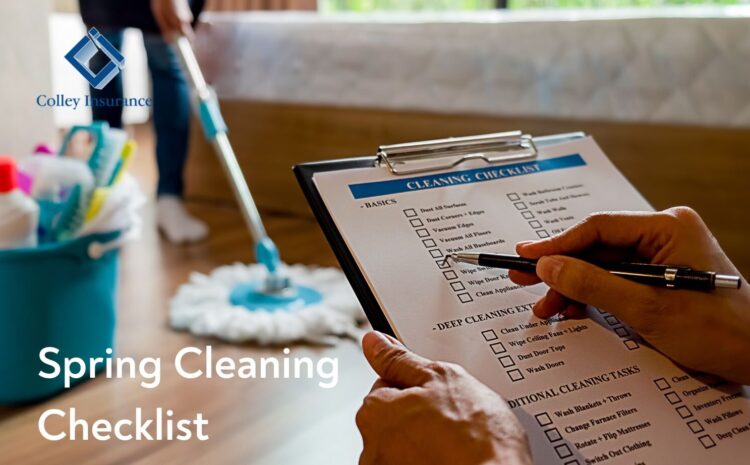
Tips to Prevent Your Home from Water Damage While On Vacation
Tips to Prevent Your Home from Water Damage While On Vacation
It’s that time of the year. It’s cold out there, and many of us look for a quick escape or a getaway down south to get some much-needed R&R.
Vacationing boosts our spirits, and makes us happy leading up to it, while we’re there, and long after we come back.
Before we pack our bags, most of us already do a good job when it comes to securing our homes and preserving them from the elements. We clean out our fridges, take care of our mail and deliveries, and ensure our vehicles are parked in the right places. We also find sitters for our pets if they are not coming along with us.
However, we often forget one of the most crucial things; turning off the water properly in our homes.
This common oversight can cause severe water damage to our homes while away.
So in this blog, we want to share some key tips on what you can do to ensure your home is safe from water damage.
Water damage or leakage can result from one or more of these sources:
Water damage may result from the freezing of pipes, especially if you’re travelling during a time when there’s a lot of precipitation.
Water may leak from an obvious source such as your dishwasher or washing machine, taps, and toilets.
Water leaks can also enter your home at pressure points like a leaky roof, a bath or shower with a poor seal, or even from a neighboring property.
How To Prevent Water Damage or Leakage While You are Away
Here are a few things you can do to prevent water damage while you are away.
Switch off the primary water supply
Turning off the water before going on a trip is one of the most critical steps to avoid water damage.
When on vacation, you should also turn off your water heater as well.
You can prevent severe water damage by turning off the valve that manages all the water in your house.
This valve needs to be switched off to the closed position if you’re leaving for an extended period to prevent leaks from happening.
Cover up (replace) exposed pipes
While you are away for an extended period during the winter months, if possible, you should insulate any pipes that are exposed.
Insulating them can keep your pipes from freezing, splitting, or breaking while you’re away.
Do not turn off the heating in your home
This is a big one as well. Many of us are tempted to turn off the heat to save on costs when we are on vacation.
But it is recommended to keep the temperature from falling below 16°C inside your home to prevent your water pipes from freezing or bursting.
Ensure all your windows and doors are properly shut
Making sure that your home’s doors and windows are properly shut will help keep the weather outside.
It will also mean that you are not exposing any pipes close to the open window or door when the temperature is very cold outside – which is at risk of bursting or causing water damage.
Another benefit – no storm will flood your home because it stops outside moisture, including rain, snow, hail, and wind, from entering your house.
Inspect all appliances
You should also consider which appliances you can turn off before departing for your holiday.
Before going on vacation, you should shut off all shut-off switches and valves on automatic sprinklers, dishwashers, ice makers, and washing machines.
Toilets and sinks are two of the most frequent places where leaks happen, so make sure that they are switched off as well.
Keep your valuables off the ground
If you keep things in your basement, be sure to raise anything expensive off the ground.
To protect them from harm in the case of a flood, they should be kept high up.
Documents, pictures, artefacts, and other significant materials should be kept in weather and fireproof containers.
If a leak does happen, keeping your valuables off the ground or in plastic containers could reduce the damage to these types of items.
Request a friend to visit your house
For further reassurance, some insurance policies require that if you are away for more than a few days, a responsible person must inspect your home every so often to make sure the temperature is kept at the right level to prevent pipes from bursting and causing significant water damage.
To ensure your home is secure, you can arrange for a trusted cousin, friend, or neighbor to come by on a regular basis. Check with your insurance broker to see how often this needs to be done.
To make sure that the heat is on and working properly during the winter and that the house has a low humidity level, they should ideally be familiar with how to work the thermostat and where it is located.
They also need to know where the main water valve is in case pipe bursts or leaks do occur.
Drain your pipes
If you aren’t able to to maintain your heat and have someone check on your home most insurance companies will require you to drain your pipes and all appliances. You can drain your pipes by turning on the taps in the lowest sink in your home and then turn on the taps in the highest sink in your home to allow air pressure to force the water out. Don’t forget to flush all of your toilets also. Follow the manufacturer’s instructions on how to drain your water heater and all appliances.
Let Our Experts Handle Your Water Damage Concerns
Even with all these prevention tips, we at Colley Insurance understand that accidents still happen.
And because of these unforeseen accidents, our coverage provides the extra peace of mind to help recover from the damages that may occur from water leaks or floods.
Ensuring you also have good flood damage coverage in your insurance policy is the way to go. Good coverage can help minimize losses and the possibility of permanent damage by ensuring much of your property is extracted, dried, drained, and salvaged by experts in a timely manner.
Need help with your insurance? We can be reached at (519) 824-4040.





